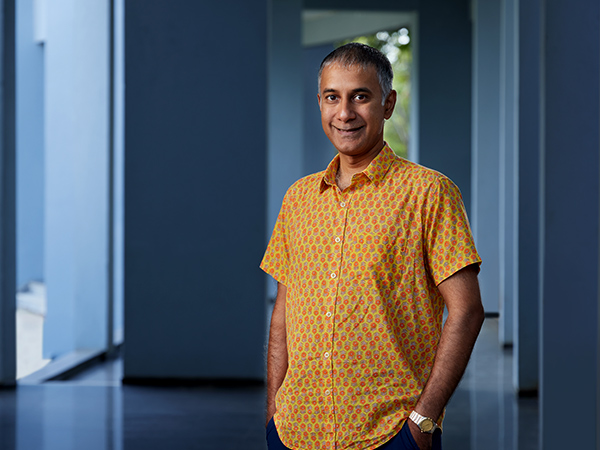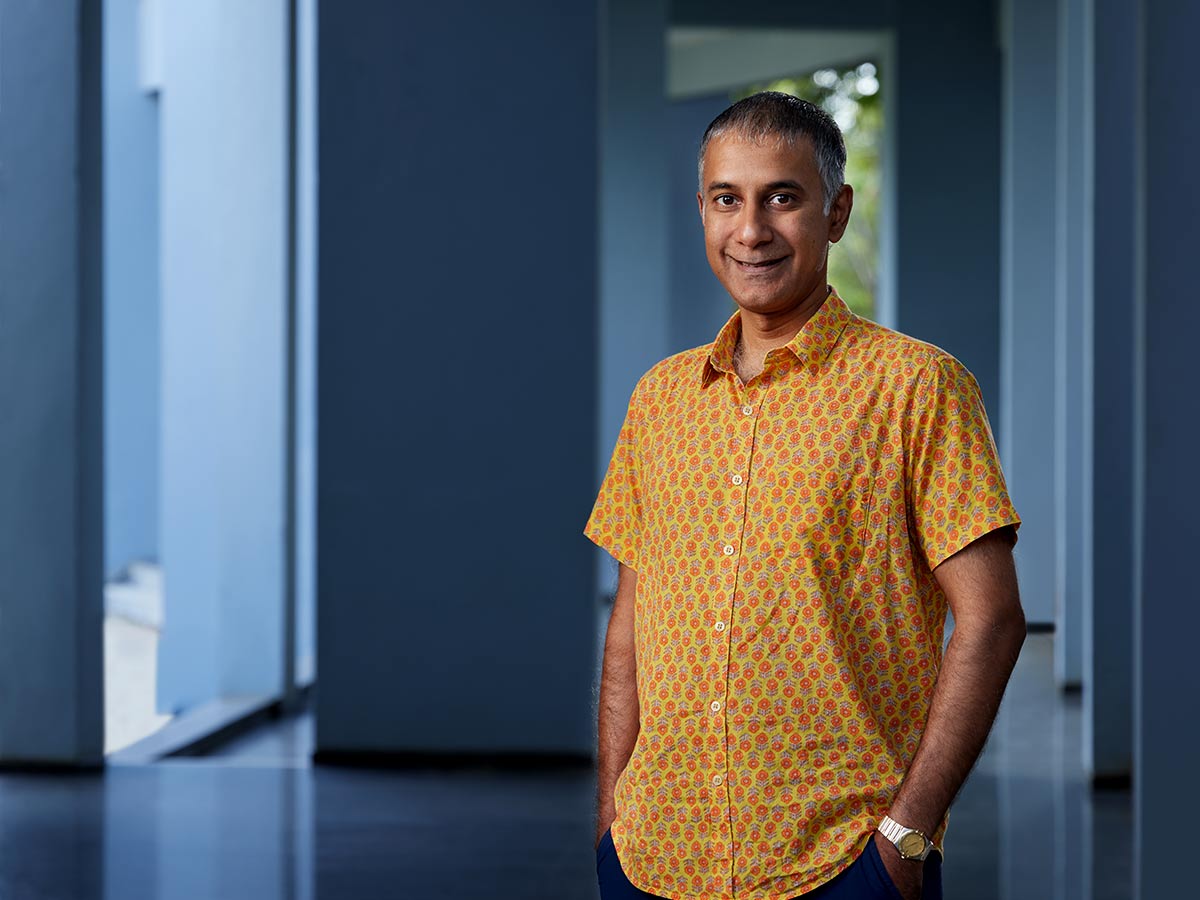The Infosys Prize 2023 in Physical Sciences is awarded to Prof. Mukund Thattai in recognition of his groundbreaking contributions to evolutionary cell biology. He has explored the origins of endomembrane organelles, shedding new light on how they emerged from ancient, primordial cells.
Infographic:
Exploring the physics of life
Scope and Impact of Work
One of biology's central mysteries is how a modern-day cell with its complex network of organelles evolved from a primitive, or archaeal, cell that had none of these structures. Data has emerged suggesting that the symbiosis of bacteria and archaeal cells led to a “proto-eukaryote”, a prototype for a modern-day cell, but one that lacked internal membranes or endomembranes. Cells as we know them today harbor an array of membrane-bound compartments, called organelles, that work collaboratively to ferry cargo into, around and out of the cell. How did so many kinds of organelles emerge and how did they form networks amongst themselves as we see in modern cells?
Prof. Mukund Thattai’s work combines molecular biophysics with DNA sequence information to metaphorically go back, deep in time, to reconstruct a physical picture of how new organelles evolved. He pinpointed that the evolution of vesicle trafficking proteins can lead to the emergence of new endomembrane organelles. Injecting ideas from statistical physics and information theory into rich bioinformatics, he has studied how organelle networks within cells evolved. Thattai showed that the unique organization within the Golgi was an inevitable consequence of the basic flows of vesicle traffic within the cell.
Bio
Mukund Thattai is a biological physicist and professor at the National Centre for Biological Sciences (NCBS) of the Tata Institute of Fundamental Research in Bangalore. In 2004, Prof. Thattai obtained his Ph.D. from the Massachusetts Institute of Technology. He joined NCBS in the same year.
Thattai helped establish the Simons Centre for the Study of Living Machines at NCBS. Under his leadership, it has emerged as one of the important centers internationally for work at the interface of biology and physics. He was instrumental in setting up the ICTP-ICTS Winter School on Quantitative Systems Biology as well as the Simons-NCBS Monsoon School on the Physics of Life, which for over a decade have attracted hundreds of ambitious students and postdocs to this interdisciplinary area. In all these ways, Prof. Thattai has helped nurture a new generation of computational biologists and put India on the map in a rapidly growing and exciting field.
Mukund Thattai has guided three Masters-by-Research and nine Ph.D. students, who have gone on to become group leaders, physician scientists, and industry researchers internationally, including at EMBL Heidelberg, the University of Warwick, and Brown University.
Timeline
Jury Citation
The Infosys Prize 2023 in Physical Sciences is awarded to Prof. Mukund Thattai for his work that has expanded our understanding of one of biology's central mysteries: the emergence of complex cells. Prof. Thattai has studied a problem lying at the crossroads of cell biology and evolution using powerful tools from physics and computer science. His groundbreaking contributions include his work on the emergence of eukaryotes from prokaryotic ancestors, the origin of hallmark eukaryotic traits such as mitochondria and the vesicle trafficking system, and the evolution and function of the Golgi apparatus.

Mukund Thattai
Your efforts to understand how organelle networks arose and evolved from primitive cells that had no organelles, have seeded a new area in evolutionary cell biology. Your findings related to how the organization of organelle networks came to be, by considering them as natural information processing systems, are both pioneering and profound. We have recognized these brilliant achievements with the Infosys Prize. Congratulations Mukund Thattai!



